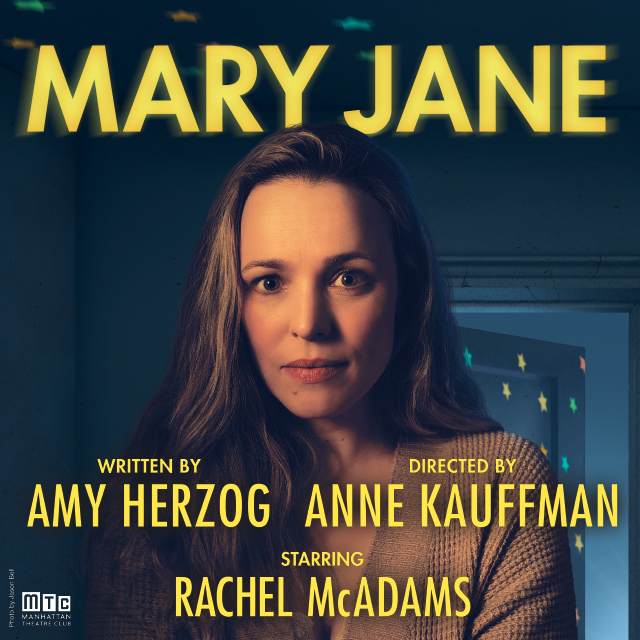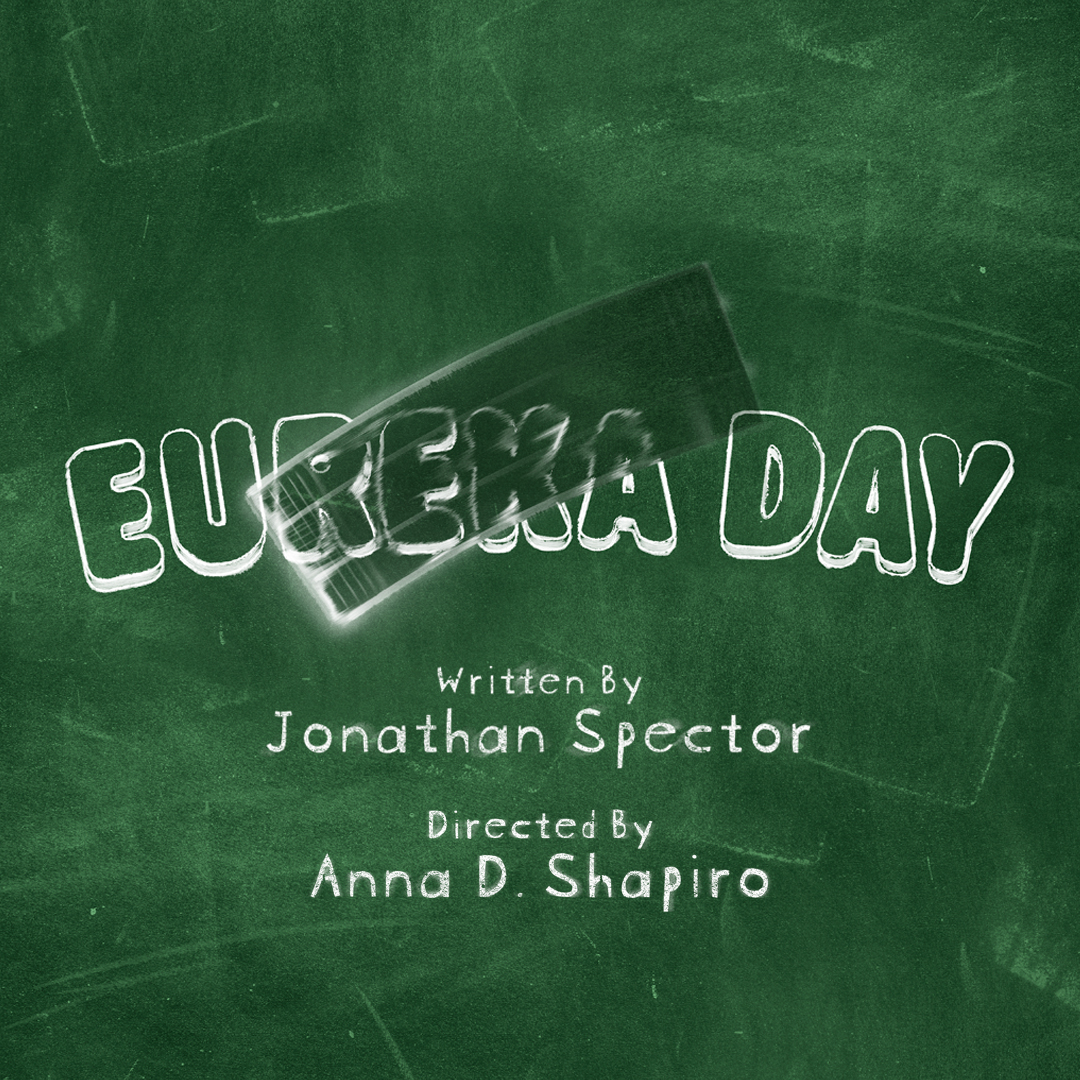MTC ANTI-RACISM STATEMENT
Manhattan Theatre Club is committed to being an anti-racist organization that respects and honors all voices while upholding the values of community, equity, access, and belonging. We understand that the United States is a country founded on white supremacy and anti-Blackness, and that these belief systems are tightly woven throughout American arts and culture. We recognize MTC’s place within that history, and understand that uprooting biases requires ongoing work. To this end, we have been reviewing, and are continuing to review, our policies and practices in order to create an inclusive, anti-racist environment for our artists, staff members, and audiences. We wish to express solidarity with and gratitude towards those from historically oppressed communities whose voices have raised consciousness and encouraged action. We will continue to post regular progress reports on our website at manhattantheatreclub.com/edi.
EDI and Anti-Racism Report Update
December 2023
We are proud that our commitment to telling stories from a wide variety of perspectives is evident in the work that was on our stages in the 2022-23 season, which centered characters finding connection despite their differences: people with physical disabilities and those without; a Haitian-American immigrant and his queer first-generation son; two of America’s most iconic artists from very different communities; a father and daughter with opposing generational mindsets; two young mothers with little else in common; and basketball fans whose interracial friendship is fraught. Great theatre helps us think anew and better understand what it means to be human—what distinguishes us as individuals and what bonds us together—and MTC will continue to seek work by the most interesting and talented voices that helps shed that light.
Since our last update, we have focused our offstage efforts on supporting, sustaining and/or growing the initiatives we engendered in the last few years. Below is a sample of some of our ongoing work.
Artistic Development:
We continue to focus on making opportunities available to a diverse array of artists from historically underrepresented backgrounds, which in turn helps to diversify the stories being told on MTC’s stages and beyond. In 2022-23, approximately 80% of MTC’s 13 new commissions were awarded to women, transgender, or non-binary artists, and 67% were awarded to artists who are Black, Indigenous, and/or people of color (BIPOC). We also presented four new plays in process in our Ted Snowdon Reading Series, which is open to the public: An Oxford Man by Else Went, directed by Emma Rosa Went; Watch Me by Dave Harris, directed by Miranda Haymon; As Above by Christine Quintana, directed by Gaye Taylor Upchurch; and The Heart Sellers by Lloyd Suh, directed by May Adrales. In June, we held the latest iteration of our new Groundworks Lab, which offers primarily BIPOC theatremakers resources to develop work while prioritizing process over product, during which director Adil Mansoor worked on Jesús Valles’ play Llermo.
Audience:
To make our productions accessible to a broader audience, we continue to provide discounted ticket opportunities. Through our 30 Under 35 program, audience members age 35 and under can purchase tickets to any MTC production for $30. Due to increased outreach efforts in the 2022-23 season, we saw a 117% increase in 30 Under 35 enrollment in fall 2023. In partnership with the two audience development consultants we employ for each of the productions in our season, we have increased our distribution of subsidized tickets in culturally specific communities via partnerships, events, and advertising to help attract racially and ethnically diverse audiences to our productions. This fall, attendance generated by our direct community outreach is up 900% compared to recent seasons. Through the Beyond the Stage program, we continue to host affinity nights and post-performance talkbacks to enrich audiences’ experiences with each production.
Education:
In 2022-23, MTC Education served 3,501 people and worked with 52 high schools and alternative schools from around NYC, the country and the world. Approximately 86% of the students we served were BIPOC, and approximately 81% were experiencing economic hardship. We continue to emphasize reaching young people who might not otherwise have access to arts education and theatre. About 11% of our students attend alternative schools, including high school equivalency programs and transfer high schools. Our 2022-23 program evaluations showed that about 40% of participating students had never attended live professional theatre before.
Accessibility:
Our permanent staff Accessibility Task Force created and is updating an internal accessibility handbook to solidify our practices and ensure continuity of our initiatives and has been working on making different types of accommodations available at our theatres. We’ll have more to share on that in our 2023-24 report.
Staff:
MTC continues to prioritize attracting a more diverse range of candidates for open staff positions, as well as conducting a more equitable selection process, including a dedicated interview between finalists and a member of MTC’s EDI Committee. In the 2022-23 season, the number of staff members who identify as BIPOC was 19% higher than it was two and a half years ago and 56% of our interns/trainees identified as BIPOC. Also in 2022-23, we employed three Design Observers (early-career designers who are BIPOC or from other underrepresented groups), one on each of our Broadway productions. In addition, we have increased our staff inclusion efforts with the creation of several action-oriented task forces to work on areas including professional development and community building, and have reinstated an internal EDI Committee newsletter.
Upon this writing, we have already had a wonderful start to the 23-24 season, beginning with having produced Jocelyn Bioh’s Jaja’s African Hair Braiding, the first world premiere on Broadway by a Black playwright in over 30 years, and the New York premiere of our co-commission Poor Yella Rednecks by Qui Nguyen. We’ve also hosted a robust slate of Beyond the Stage programming. For example, in support of Jaja’s African Hair Braiding, talkbacks included “My Crown, My Power,” a conversation about The Crown Act, which empowers Black women by allowing them to make career moves without fear of discrimination based on their hairstyling; “Shop Talk,” analyzing the essential role braiding shops hold in the African Diaspora, looking specifically at the American experience; and “Black Business Women,” highlighting Black women in the tri-state area who are impacting their communities with their entrepreneurial spirit and drive.
We look forward to sharing more news of the 2023-24 season at its conclusion and in the meantime, are grateful for all of our staff and partners who are working to help make positive change at MTC.
As always, thank you for your interest in and support of MTC.
EDI and Anti-Racism Report Update
December 2022
Equity, diversity and inclusion efforts remain a top priority at Manhattan Theatre Club. We are continuing the initiatives described in our past updates and are striving to center anti-racism in all of our administrative and artistic work.
Here are updates on some of our progress since our last posting:
- We remain committed to ensuring that the artists whose work is on our stages represent a wide range of backgrounds and perspectives. The plays we have produced since our last update reflect this commitment.
- We provided hundreds of seats to our productions at discounted community rates and supplied select community groups with complimentary seats to each of our productions.
- We hosted a robust series of Beyond the Stage events to offer members of our local and virtual communities free opportunities to connect to our plays’ cultural contexts.
- We have established a portal for the companies of our shows to report EDI concerns.
- We have expanded the role of the company-specific EDI reps on each show, ensuring that they are a prominent and regular presence while each show is in rehearsal and running.
- We have adjusted tech schedules where possible to make sure they consider the needs of our artists and crew members.
- We have provided our administrative staff with Unconscious Bias Training and are providing access to training materials to the company members of each of our shows.
- We have continued to increase BIPOC representation amongst our full-time staff members.
- We provided our administrative and front of house staff with Bystander Intervention and De-escalation Training, so that they will be better equipped to help disrupt or manage any incidents of discrimination that may take place at our theatres or offices.
- We provided our staff with Disability Awareness Training led by the Mayor’s Office for People with Disabilities.
- We have created an internal Community Task Force to work on staff inclusion initiatives. The first two events have already taken place.
- We have created a new staff affinity group: Employees with Disabilities and Allies.
- We have employed four paid Design Observers, allowing early-career stage designers who are BIPOC or from other underrepresented groups to gain valuable work experience and networking opportunities on our Broadway shows. We are committed to having an Observer on each of our Broadway shows this season.
- We are currently hosting our first class of Early Career Professional Trainees for the 2022-23 season. This program replaces our internship program during each theatre season. Trainees receive paid time off as well as full fringe benefits while gaining thorough training in theatre administration as they work alongside our permanent staff. They are offered support from supervisors and mentors to ensure that participants are not only gaining valuable skills, but also receiving continuous advice and feedback. Their experience is further enhanced by an educational seminar series led by the industry experts on MTC’s staff as well as career development coaching with our human resources team.
- We have welcomed our first Drama League Directing Fellow, who will be a part of our team for two years. This program, designed to provide career development along with a generous scholarship prize for early-career stage directors, especially encourages applications from members of populations that have historically been denied equity, access, inclusion, or belonging in the field and in society, and/or those whose career paths may have been nontraditional.
- We made several physical changes to the Friedman Theatre to increase accessibility both in the front of house and backstage areas.
We look forward to continued progress and will share future updates here.
Thank you for your interest in and support of MTC.
EDI and Anti-Racism Report Update
December 2021
We at MTC remain wholly committed to our EDI and anti-racism work, and in an effort to remain accountable, we want to share with all of our constituencies some highlights of the actions we have taken since our last update:
- MTC’s mission is to produce theatrical works of the highest quality, most often by living playwrights. Equally important to us is the quality of artists who bring our shows to life. We believe in working with a wide range of talent, from novices to highly experienced artists and we are committed to ensuring that a diversity of voices is represented on our three stages. This season, a total of 50% of our productions, including two of our three Broadway shows, are written and directed by BIPOC artists.
- We adopted an anti-racism statement for MTC, which now appears on our website, in our Playbills, in our welcome guide for artists, and on the walls of all of our spaces, amongst many other places:
Manhattan Theatre Club is committed to being an anti-racist organization that respects and honors all voices while upholding the values of community, equity, access, and belonging. We understand that the United States is a country founded on white supremacy and anti-Blackness, and that these belief systems are tightly woven throughout American arts and culture. We recognize MTC’s place within that history, and understand that uprooting biases requires ongoing work. To this end, we have been reviewing, and are continuing to review, our policies and practices in order to create an inclusive, anti-racist environment for our artists, staff members, and audiences. We wish to express solidarity with and gratitude towards those from historically oppressed communities whose voices have raised consciousness and encouraged action. We will continue to post regular progress reports on our website at manhattantheatreclub.com/edi.
- We have posted a land acknowledgment in each of our theatres and rehearsal spaces, printed it in our Playbills, and are reading it at large meetings and presentations.
- We were amongst the initial signers of Black Theatre United’s New Deal in August.
- In an effort to increase the diversity of our Board of Directors, we have elected five new members since January 2021, increasing BIPOC representation on the Board to 27%.
- Having prioritized attracting a more diverse range of candidates and conducting a more equitable selection process, we have brought on 12 new permanent members of our administrative staff since January 2021, increasing the racial and ethnic diversity of our staff and adding a wider range of perspectives to our team.
- We incorporated an EDI interview into our hiring process for all administrative staff to help ensure that new staff are in alignment with MTC’s organizational goals for equity, diversity, and inclusion and to offer candidates a chance to get their questions about organizational EDI work answered. These interviews are conducted in a joint effort by our HR Department and our EDI committee.
- We provided anti-racism training for our full-time theatre staff (who did not receive it along with our administrative staff at an earlier date).
- We scheduled de-escalation and bystander intervention training for our front of house staff and plan for a similar training to be held soon for our administrative staff.
- We have arranged for upcoming unconscious bias training for our administrative staff.
- MTC Education continues to serve thousands of New York City high school students and has begun to engage in new collaborations and partnerships with community-based organizations serving predominantly BIPOC adolescents.
- We have diversified the team evaluating scripts and other dramatic material for us to include more perspectives from BIPOC and other groups underrepresented in theatre.
- We engaged an additional casting director to assist with culturally specific casting on a production this season.
- We are working to diversify our production crews to include more staff who are BIPOC and from other underrepresented groups.
- One of our artistic priorities is to expand our support of BIPOC artists in all of our developmental work and play commissions. This year’s roster of commissioned artists reflects that commitment.
- We began the Groundworks Lab, a year-round program that offers theatremakers space, resources, and stipends to develop their work and prioritizes process over product. As in all of our developmental work, we consider it a key priority to allocate many of these resources to BIPOC artists and other historically underrepresented theatremakers. For the inaugural 2021-22 season, we are working with four projects.
- We have expanded our outreach to artists and stage managers unfamiliar to MTC in an effort to diversify our pool of potential collaborators.
- In conjunction with the Drama League, we added a Directing Fellowship to provide career development along with a generous scholarship prize for early-career stage directors. Applications are especially encouraged from members of populations that have historically been denied equity, access, inclusion, or belonging in the field and in society, and/or those whose career paths may have been nontraditional.
- We developed a paid Design Observership to allow one early-career stage designer who is BIPOC or from another underrepresented group to gain experience and networking opportunities on each of our Broadway shows.
- We have greatly increased programming for our Beyond the Stage series to offer members of our local and virtual communities free opportunities to connect to our plays’ cultural and historical contexts.
- We are reviewing tech schedules to make sure they work as well as possible for the artists and crew members involved.
- We have begun naming an EDI Officer for each production and sharing a formal infraction reporting process with all involved.
- We have begun ensuring that all hair/make-up personnel exhibit proficiency in the proper care of Black hair and skin, when applicable.
- We have instituted and/or adjusted pay structures for all artists participating in developmental work and/or institutional/fundraising events.
- We have hired an audience development consultant for all shows.
- We have developed partnerships with organizations and agencies in traditionally underserved communities.
- We are allocating dedicated seats at every performance at discounted community rates.
We are grateful to all of our colleagues who have worked to shed light on these issues and helped to identify potential solutions, including but not limited to members of Black Theater United and We See You, White American Theater. We thank MTC’s Board of Directors and staff, especially our dedicated EDI committee, for all that they have done to help make our progress so far possible. We know there is much work yet to be done and reaffirm our dedication to continuing to make strides towards becoming a truly anti-racist institution. We also wish to thank everyone who is reading this for their interest and investment in the future of Manhattan Theatre Club.
As we near the celebration of our first half-century, we are enthusiastically and optimistically looking towards laying the groundwork to help MTC remain a vital force in the American theatre over the next 50 years. This will only be possible if we can ensure that MTC is an equitable, diverse, and inclusive institution that will serve all artists and audiences well. We hope that you will continue to follow our progress and in the meantime, we hope to see you at the theatre!
EDI and Anti-Racism Report Update
January 2021
In the summer of 2020, as our nation confronted our deep and enduring history of racism, we at Manhattan Theatre Club reaffirmed our commitment to Equity, Diversity and Inclusion. We undertook plans to prioritize, expand and reenvision our policies and actions. While we take great pride in having produced work by some of the greatest living Black playwrights and artists, we realized that we must do much more. In July, when we received the call to action from We See You, White American Theater, we were further emboldened and inspired to join in a necessary and important mission.
Real change requires CONSCIOUSNESS first. In the last months, we have reviewed the initial document sent by We See You, White American Theater, discussed and reflected, listened and learned. We have expanded our awareness and opened our eyes to the realities, pain, and anger experienced by our colleagues. And we commit to addressing these inequities.
In this process, we have been guided by our desire to support Black, Indigenous, and POC theatre-makers and to amplify their voices—a desire which has impacted our programming and artistic planning, including commissions and virtual offerings.
During the nine-month period of the mandatory shutdown, we have taken the following actions:
-
- Ruben Santiago-Hudson has joined MTC as Artistic Advisor. In this capacity, he is working with Artistic Director Lynne Meadow and MTC’s artistic staff on policy and programming and leading initiatives to create relationships and future collaborations with BIPOC artists and organizations.
-
-
- Our Board of Directors has revised its membership guidelines to make them more welcoming to a wide range of candidates. We began electing new members at our last meeting and are actively in conversation with several prospects.
- In October, we completed a first round of anti-racism training for our artistic and administrative staff, both active and currently furloughed. Once we are back in production, we intend to offer training to all of our employees.
-
- Our five-year-old EDI committee has increased the frequency of its meetings and is currently meeting weekly.
-
- We have reinstated and increased on-boarding and retention practices designed by our EDI committee to make MTC a more inclusive and friendly workplace for all. Our programs include providing “welcome ambassadors” for all new hires, standardizing our interview process, and adding levels of scrutiny to job descriptions to eliminate unintentional bias.
-
- We began comprehensive departmental reviews facilitated by our EDI committee to assess our practices in the administrative and artistic offices with an eye toward creating inclusive agendas and supporting anti-racist policies.
-
- We have established four affinity groups (BIPOC, LGBTQ+, parent/caregiver, and female-identifying) for artistic and administrative staff.
-
-
- We have initiated two EDI-focused book clubs (fiction and non-fiction) and established a shared drive on our internal server to share anti-racist resources with our administrative and artistic staff.
- We have committed to seeking out BIPOC candidates for all open staff positions and have begun increasing the range of perspectives involved at all levels of our organization.
-
-
- We are actively engaged in deep and candid conversations about how we will change practices related to rehearsal and performances as soon as we are able to resume production to ensure that we are as equitable and inclusive as possible in our rehearsal rooms and at our theatres.
-
- We are committed to increasing our audience development efforts to endeavor to bring in a more diverse audience.
Equity, Diversity and Inclusion are essential in all activity of our organization, both on and off-stage. We are looking enthusiastically towards the future when we can return to our theatres to share interesting and inspiring work with a broad audience.
We believe in the power of the theatre to enrich and enliven us and know that it will be more important than ever as we emerge from the pandemic. We are committed to producing the best theatre possible, which allows us to understand and reflect on what it means to be human—what we all have in common and what makes us each unique. We are committed to sharing stories of, and by, a wide range of voices and to doing the outreach work required to bring in a wide range of audiences.
We are aware that our commitment to help transform our industry and to build a more hospitable and inclusive climate within our own organization requires a sustained effort. We are prepared to devote time and resources to endeavor to bring about these outcomes. Ours will be an ongoing process, and we look forward to being back producing live theatre, to welcoming artists and audiences back to our theatres, and to all the exciting work ahead.

Lynne Meadow
Artistic Director
Barry Grove
Executive Producer*For updates (or more information) on actions we have already and are planning to take, please continue to visit our website: www.ManhattanTheatreClub.com.
-
TO THE AUDIENCE
Updated June 2020
We at Manhattan Theatre Club have spent a lot of time since the horrific murder of George Floyd, feeling outraged and sad about the shameful history and perpetuation of racism in our world.
Racism is a deadly virus that has led to the worst acts of human aggression, making a mockery of “liberty and justice for all.” Watching footage of the terrible tragedy in Minneapolis galvanized us to accept and declare that real, lasting change will not come until each and every one of us steps up, assumes responsibility and takes action to eradicate any expression of bias, prejudice and racism.
Our core mission is to create, develop and produce new works of theatre—an art form that, when it is most successful, holds a mirror up to us as individuals and as a society. That mirror reflects the need to address racism as it exists in every industry, including our own.
Although our stages are temporarily bare, we at MTC have spent the last days thinking about how our role as an arts organization can create the change needed to address the racism, bias and prejudice that pervade our industry and our culture. And while MTC takes pride in having produced work by some of the greatest living Black playwrights, we firmly embrace a new mandate to do much more.
We are writing now to affirm our total commitment to support the Black community and to equity, diversity and inclusion both on and off our stages. Black Lives Matter.
With a renewed spirit, we are moving forward and redoubling our efforts to promote equity and diversity.
- We commit to working to increase the presence of artists of color, especially Black artists, working on our stages and to actively serve NYC’s vibrant community of Black artists in the creation and celebration of their work.
- We commit to prioritizing and working with our Equity, Diversity and Inclusion committee to analyze our practices and to make all of our spaces firmly anti-racist. Both short- and long-term plans will be an institutional priority.
- We commit to seeking greater representation of people of color on our Board and in our staff.
- We commit to mandating and providing unconscious bias training for all staff.
- We commit to creating an open and safe forum where staff and visiting artists can come together for open discussions. We will urge dialogue and candid communication.
- We commit to prioritizing efforts to make our productions more accessible to Black audiences.
The long-overdue process of fully eradicating racism will be an ongoing one. We are committed to continually reassessing and adding to our plans and we welcome any thoughts that you would like to share with us.
There are many resources available for those of you who would like to make a donation or find other ways to help make a change. Here are just a few to help you get started:
Black Lives Matter – https://blacklivesmatter.com/
Black Visions Collective – https://www.blackvisionsmn.org/
Color of Change – https://colorofchange.org/about/
NAACP Legal Defense and Educational Fund – https://www.naacpldf.org/




